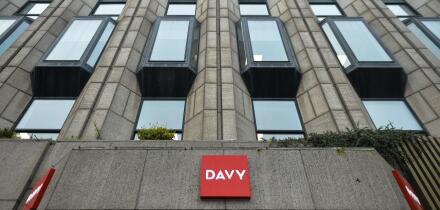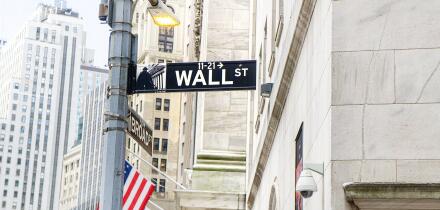“We believe digital currencies are hitting an inflection point,” said Paul Chou, the CEO of New York-based LedgerX, in an exclusive interview with GlobalCapital ahead of its DCO approval.
In a statement, LedgerX revealed that it initially plans to list “one to six month options contracts for bitcoin ”, with other digital currency contracts “expected to follow”.
Chou told GlobalCapital that LedgerX was “built from the ground up to support any digital currency”, and that his team is prepared to put a contract on any digital currency with a large enough market capitalisation in future.
Following a bump in the market capitalisation of cryptocurrencies towards the end of 2013, the total value of the asset class had hovered between $4bn and $10bn until late 2016, when it started to grow. Since April 2017, the total value has rocketed by roughly 280% in two months, briefly touching $116bn twice in June.
This was spurred on by initial coin offerings (ICO) throughout 2017, as tech start-ups raised capital by issuing new cryptocurrencies , according to Brian Kelly, CEO and founder of investment management firm BKCM.
“The founding team has been involved with bitcoin and cryptocurrencies since 2011,” said Chou. But despite being excited about the potential of digital currencies, LedgerX waited to apply for licences as its managers thought the market capitalisation was too small.
“We waited for a few years and as the market cap started to reach sizeable proportions — of around $100m and then eventually $1bn — we saw an increasing need for people to manage the volatility that is inherent in a new asset class such as bitcoin, and as you can imagine the volatility has been absolutely enormous.”
Bitcoin and many altcoins — cryptocurrencies that aren’t bitcoin , like ether and litecoin — are decentralised from central banks and governments and are controlled, a term best applied loosely, by ‘miners’ and programmers. In order for these cryptocurrencies to function properly, these miners use computer processing power to solve difficult mathematical puzzles that help store verified transactions on a blockchain, a ledger distributed across a network of computers.
Unlike many shared ledger solutions proposed by fintech companies, the bitcoin blockchain can be publicly viewed but not altered by everyone, and miners are rewarded for their efforts with newly minted digital currency.
The contentious process of changing elements of a payment system such as bitcoin is achieved by “community consensus”, said Kelly. Programmers have the skills to make the changes, but ultimately miners choose what programme is run to verify transactions.
Deborah North, derivatives partner at Allen & Overy in New York, said that LedgerX’s registration “represents a small but pretty significant step forward for bitcoin, and cryptocurrency more generally, as a legitimate asset class”.
Why crypto-derivatives?
“If for example, you are a miner, your business is not too different from BP where you invest in equipment to get a commodity, and thus get bitcoin out of the system.
“These miners can get a good premium by selling calls and taking advantage of the high volatility of cryptocurrencies,” he explained.
On the other side of the trade are speculators, consisting of two main categories. The first contains speculators with technical backgrounds in computer science or similar subjects, who understand the potential of bitcoin very well, according to Chou.
These tech-savvy traders may have worked in a high frequency automated trading shop and be interested in a market with attractive spreads.
The second group consists of commodity traders and similar, who are interested in “natural gas, oil or gold speculation”.
“A lot of these markets have seen their volatility compressed dramatically over the past few years,” added Chou. “So they use this new asset class to get directional exposure.”
GlobalCapital understands that hedge funds, alternative asset managers and private wealth managers all approached LedgerX when it refiled their successful DCO applications in January.
But there is growing evidence of institutional investors’ interest in gaining exposure to cryptocurrency risk, said North.
“The LedgerX DCO now provides another possible avenue for them,” she said.
The federally sanctioned status of cryptocurrency exchanges such as LedgerX could also soothe institutional investors’ concerns about custody of assets.
Kelly said that until now, with cryptocurrency derivatives you had to “custody the assets yourself, which most institutions can’t do simply by virtue of their charters”.
“With an options exchange, they already have those agreements in place and permission from their investors to do that, so it is a very natural step to buy a bitcoin option,” he said.
“A lot of large hedge fund professionals have been investing in bitcoin but mostly in their personal accounts. They see the returns they are getting in their personal accounts and are trying to find ways to get it into their fund.”
Chou emphasised that in New York, there was “no shortage” of hedge funds or active managers “looking for a new asset class that is completely uncorrelated to the traditional financial instruments that they are used to having in their portfolios”.
Kelly agreed with the sentiment, and said he expected university endowments to move into the market.
They love me, they love me not
The country has taken a less “sandbox” regulatory approach than other countries, according to Matthew Kluchenek, global head of derivatives at law firm Baker McKenzie.
“In the US, numerous regulators are considering whether to regulate cryptocurrencies,” he said. “Some federal and state regulators have embraced regulation, others have not, and some remain on the sidelines.”
A string of enforcement actions by the Commodity Futures Trading Commission in 2015 showed the world the US regulator was serious about cryptocurrencies . An order against coinflip determined that “ bitcoin is a virtual currency” but “does not have legal tender status in any jurisdiction”.
The CFTC itself acknowledged in the order that the definition of a commodity was “broad” but that “services, rights and interests in which contracts for future delivery are presently or in the future dealt with” are commodities, bringing bitcoin and other cryptocurrencies into its scope.
Chou said that LedgerX took a “strategic bet” that the “CFTC would be the most likely regulator to look at derivatives products on bitcoin ”.
“Working with the CFTC has been great,” he added. “For such a new and difficult to understand asset class they have been very open-minded and quite fast at picking up the nuances of how the technology works.”
He also mentioned that as a member of the CFTC’s technology advisory committee, one third of a recent meeting he had attended was dedicated to bitcoin .
“There is definitely a push to get into that area,” he said.
SEC wades in
While this is not the first time the SEC has made a foray into cryptocurrencies, it is a bold move that would give the organisation jurisdiction over many of the initial coin offerings entering the market.
But Alfredo Silva, partner at Morrison & Foerster, didn’t think it was likely that the report would hugely affect investors engaged in the cryptocurrency derivatives market.
“Our long-standing investor clients are not interested in spot purchases of cryptocurrency ,” he said. "They are looking at exotic derivatives to hedge their strategies, and need CFTC regulated platforms to engage in these.”
The perils of democracy
“The main issue facing bitcoin right now is scalability,” said Mati Greenspan, senior market analyst at eToro, a trading platform which supports cryptocurrencies .
“The bitcoin network has become so popular that it’s processing more transactions than it can really handle, so we need to either improve protocols for smoother transactions or fork the network into two different currencies.”
According to Kluchenek, a hard fork occurs when “miners and programmers disagree on a route for the cryptocurrency to take”.
“This disagreement could be based on protocols, technological standards or other things,” he said.
Miners are angling to signal for different protocols that lead to different sizes of blocks in the chain; meaning faster transaction speeds for users.
Greenspan indicated that the official bitcoin website, bitcoin.org, told users of the digital currencies to “not trust any payments” received after August 1 until the fork event is resolved. While the event will likely provide speculators with the opportunity to take advantage of the increased volatility, it also demonstrates some of the pitfalls that could drive away more risk-averse investors.
Enter central bankers
“I certainly think that an international reserve currency threatens every single central bank out there,” said Kelly. “That being said, there have been several central banks that have embraced it, acknowledging that there are some real uses for this technology.”
But Kelly praised bitcoin’s potential power as a global currency, and said that “like the internet, bitcoin and digital currencies have gone over the threshold of too big to stop”.
He added: “By the time central bankers go ‘oh no this is a problem”, it is going to be beyond their control.”







